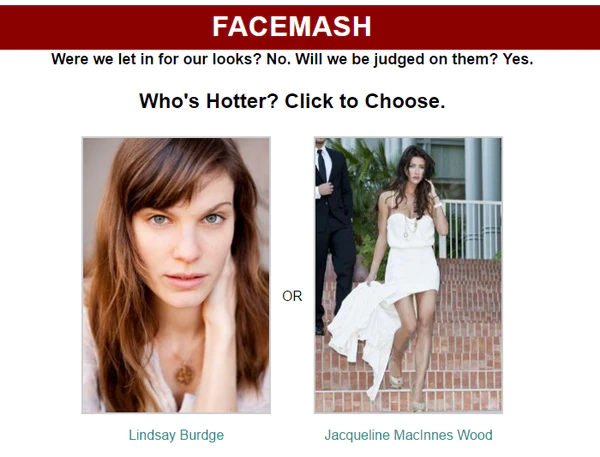Zuckerburg transitioned to run the company from its new headquarters in Palo Alto, California. It dropped “The” from its name in 2005 and by the end of 2005 had over six million users. Today Facebook is one of the largest social media apps and has over two billion average monthly users (25% of all humans on the planet-worldwide).
Zuckerburg’s idea for Facebook came from his gift of coding. In the fall of 2003 he launched a website called FaceMash. The purpose of FaceMash was for students to vote on which randomly two selected Harvard women they thought was more attractive. Even though FaceMash was short-lived, it made Zuckerburg very popular on campus and led him to create a social media network for college students, which became his initial goal with Facebook.
Facebook filed for its first public offering in February 2012, seeking to raise $5 billion. Trading in the stock began on May 18, 2012. Facebook has only continued to grow. Today it is one of the most important media institutions of the 21st century. It was a major force of bringing the internet into its phase of user-generated content that we refer to as "Web 2.0."
Facebook has changed the world in many ways over the past (almost) twenty years. It has transformed social relationships by allowing users to instantly communicate with family and close friends in new ways; reunite with long lost high school friends or sweethearts; allow seamless communication with local groups such as churches, schools or sports teams; and bring together those with similar interests from all over the world (those who love Lexus automobiles, Pastor Charles Stanley or guitarist Neil Young-even those who like all three at the same time). It has also created tremendous marketing opportunities, even locally.
My parents check Facebook for their favorite local restaurants every single day. “To friend” became a verb. It became just as easy to “defriend” someone who you discovered had values or interests you despised. Professor Robin Dunbar, who has studied Facebook, stated that social interactions have changed forever, and not always for the best. He said, “In the sandpit of life, when somebody kicks sand in your face, you can't get out of the sandpit. You have to deal with it, learn, compromise. On the internet, you can pull the plug and walk away. There is no forcing mechanism that makes us have to learn”(The Guardian). We have also given up tremendous amounts of our privacy unwittingly to Facebook and its marketing partners.
Facebook has also remained controversial. Like many social media networks there is a lot of misinformation disseminated and thousands of fake accounts. Facebook has also drawn criticism for selling users' data and for failing to protect the data of their users properly. Still, Facebook continues to dominate the social media market. They have generated by far the most ad revenue of any social media app and they maintain over half of the total market share (Dreamgrow).






No comments:
Post a Comment